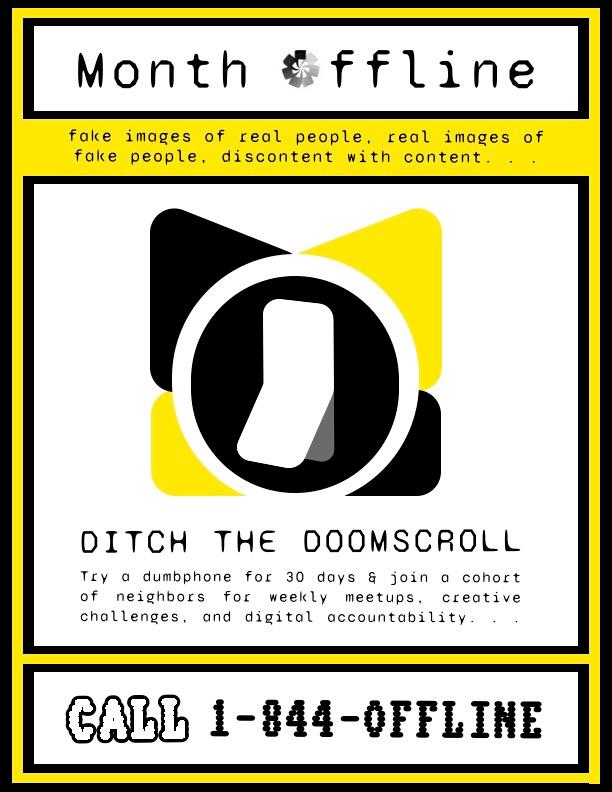
News
October 21, 2025
When Everything Is Fake, What’s the Point of Social Media?
With realistic AI videos flooding the timeline, social media is becoming a fake content machine.
---
Social media, once touted as a platform for genuine connection and authentic self-expression, is facing an existential crisis: if everything is fake, what's the point? The rise of increasingly sophisticated AI-generated videos is rapidly transforming online spaces into a breeding ground for fabricated content, leaving users questioning the veracity of what they see and hear.
The problem stems from the astonishing advancements in artificial intelligence. Algorithms can now create photorealistic videos of people saying and doing things they never actually said or did. These "deepfakes," as they are commonly known, are becoming increasingly difficult to distinguish from reality. This poses a significant threat to trust and credibility online.
Imagine scrolling through your timeline and encountering a video of a public figure making a controversial statement. Before you can even react, consider that it might not be real. The ease with which these AI-generated videos can be produced and disseminated means that misinformation can spread like wildfire, potentially manipulating public opinion and causing real-world harm.
Beyond the political implications, the prevalence of fake content also erodes the very foundation of social connection that these platforms were built upon. How can you trust the opinions and recommendations of influencers when you suspect their endorsements are AI-generated? How can you believe the heartfelt stories shared by friends when you fear they might be cleverly crafted narratives designed to deceive?
The consequences of a social media landscape saturated with fake content are far-reaching. The erosion of trust could lead to increased cynicism and disengagement, as users become wary of everything they encounter online. It could also fuel the spread of conspiracy theories and harmful ideologies, as people struggle to discern fact from fiction.
So, what can be done? Platform providers need to invest in robust detection tools to identify and flag AI-generated content. Media literacy education is crucial to empower users to critically evaluate the information they consume online. And perhaps most importantly, we need to cultivate a culture of skepticism and responsible sharing, encouraging people to question the authenticity of content before amplifying it to their networks. The future of social media hinges on our ability to navigate this new reality and reclaim these spaces as platforms for genuine connection and informed discourse.
Social media, once touted as a platform for genuine connection and authentic self-expression, is facing an existential crisis: if everything is fake, what's the point? The rise of increasingly sophisticated AI-generated videos is rapidly transforming online spaces into a breeding ground for fabricated content, leaving users questioning the veracity of what they see and hear.
The problem stems from the astonishing advancements in artificial intelligence. Algorithms can now create photorealistic videos of people saying and doing things they never actually said or did. These "deepfakes," as they are commonly known, are becoming increasingly difficult to distinguish from reality. This poses a significant threat to trust and credibility online.
Imagine scrolling through your timeline and encountering a video of a public figure making a controversial statement. Before you can even react, consider that it might not be real. The ease with which these AI-generated videos can be produced and disseminated means that misinformation can spread like wildfire, potentially manipulating public opinion and causing real-world harm.
Beyond the political implications, the prevalence of fake content also erodes the very foundation of social connection that these platforms were built upon. How can you trust the opinions and recommendations of influencers when you suspect their endorsements are AI-generated? How can you believe the heartfelt stories shared by friends when you fear they might be cleverly crafted narratives designed to deceive?
The consequences of a social media landscape saturated with fake content are far-reaching. The erosion of trust could lead to increased cynicism and disengagement, as users become wary of everything they encounter online. It could also fuel the spread of conspiracy theories and harmful ideologies, as people struggle to discern fact from fiction.
So, what can be done? Platform providers need to invest in robust detection tools to identify and flag AI-generated content. Media literacy education is crucial to empower users to critically evaluate the information they consume online. And perhaps most importantly, we need to cultivate a culture of skepticism and responsible sharing, encouraging people to question the authenticity of content before amplifying it to their networks. The future of social media hinges on our ability to navigate this new reality and reclaim these spaces as platforms for genuine connection and informed discourse.
Category:
Technology